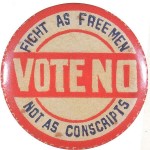Thrifty, Principled Republican Plans to Defund NPR
Taxation, The Right, Vulgar PoliticsIn a bold move that promises to prove the Republicans’ dedication to preserving the First Amendment and fixing up the federal budget, Senator Jim DeMint has introduced a bill to eliminate federal funding for NPR. This is following the great controversy over NPR’s decision to fire Juan Williams, who made some commentary on Muslims and air travel that his bosses at NPR didn’t quite like.
DeMint, I’m sure, of course has a heroic record of free speech advocacy. I assume, though I have not found evidence at the time of writing this, that he introduced bills and fought vigorously for an end to this ridiculous idea of “free speech zones” which were used during the Bush Administration to stifle free speech. Because, surely, Jim DeMint is all about free speech, and this latest move was not simply motivated by his approval of Williams’ commentary, but rather from a deep philosophical opposition to government restriction of speech.
Some might also think that the $420 million that defunding NPR (and PBS) would save is a bit on the paltry side as far as budget cuts go, given that federal spending for FY2010 was officially about $3.5 trillion, or, to use like-terms, $3,500,000 million. But hey, that’s something, right? And, after all, if you exclude Social Security, Medicare, Medicaid, interest on the debt, all the other “mandatory” spending, and everything to do with the military, is there really that much else to cut?
So good on you, Jim DeMint. Keep up the good work.

Thrifty, Principled Republican Plans to Defund NPR Read Post »

